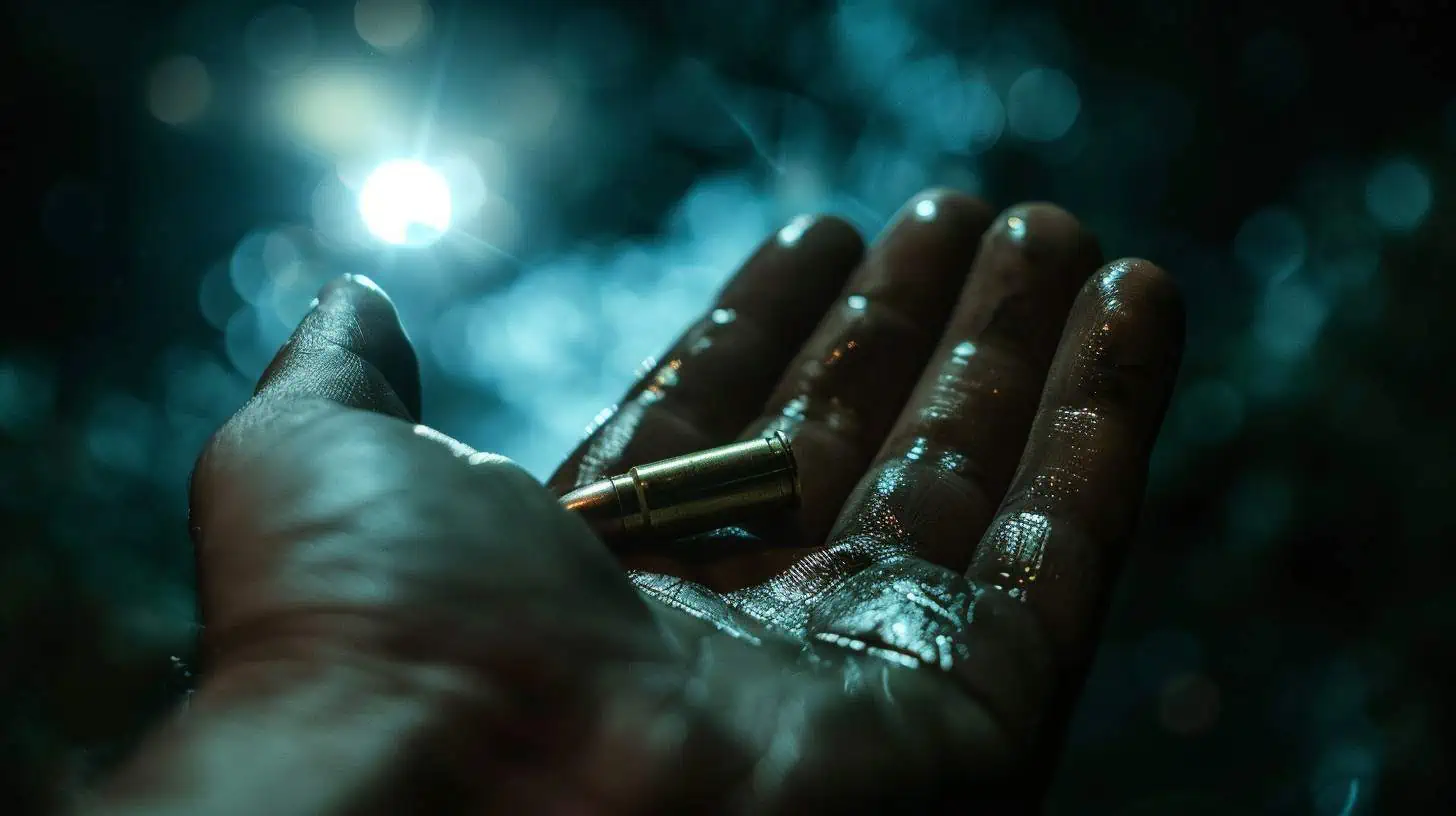Gunshots rip through flesh and bone, leaving victims in agony. But what does getting shot really feel like? Is the pain as excruciating as Hollywood portrays, or are there other sensations at play? Survivor accounts reveal startling truths beyond the myth.
Over 100,000 Americans are shot each year – many survive to share their harrowing experiences. From life-threatening injuries to bizarre physical reactions, getting shot triggers a torrent of complex bodily responses.
This article unveils these rarely-discussed realities through raw, first-hand tales. You’ll gain a deeper, more nuanced understanding of this traumatic event.
Key Takeaways
Getting shot triggers a complex array of physical sensations and psychological responses, contrary to common myths. While excruciating pain is expected, many survivors report feeling little to no pain initially due to shock and adrenaline.
The experience varies significantly based on factors such as the caliber of the bullet, the location of the injury, and the individual’s pain tolerance. Higher calibers and wounds to vital areas like the head, chest, or abdomen tend to be more catastrophic.
The aftermath of getting shot is physically and psychologically devastating. Survivors often face a grueling recovery process, involving multiple surgeries, physiotherapy, and the need to confront trauma through therapy and counseling.
Getting shot can have a profound and lasting impact on a survivor’s life, leading to post-traumatic stress disorder (PTSD), anxiety, depression, strained relationships, and job losses. Professional help and support are crucial for coping with the psychological fallout.
From a medical perspective, getting shot causes catastrophic damage to the body, including shattered bones, ruptured organs, and severe bleeding. Rapid medical intervention and trauma care are critical for survival and recovery.
Table of Contents
Understanding the Phenomenon of Getting Shot
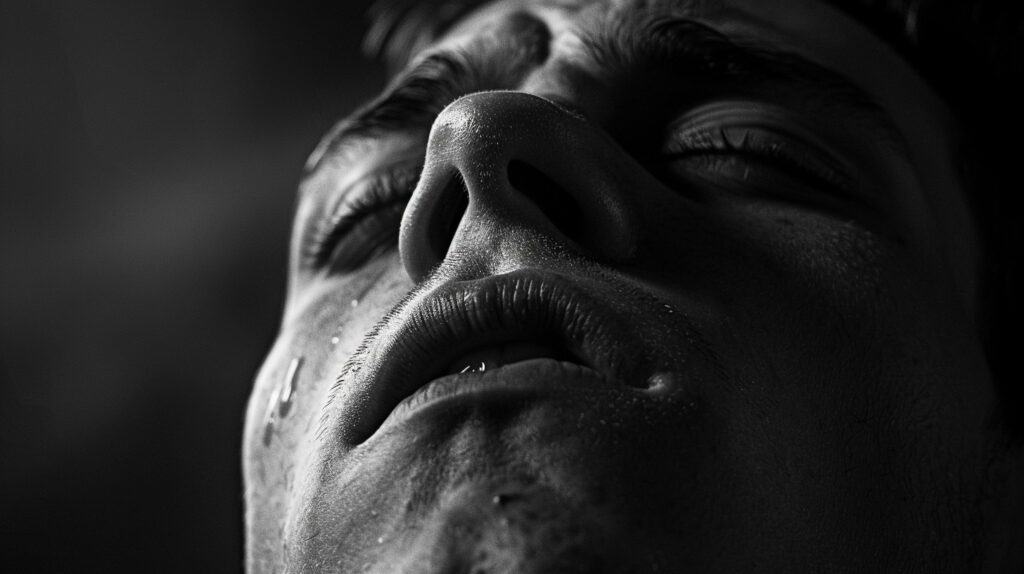
Gunshot wounds are a brutal reality—piercing flesh, shattering bones, and forever altering lives. Getting shot isn’t just a physical trauma; it’s a seismic event that ruptures the psyche.
The caliber—determining the bullet’s devastating force—shapes the carnage. Vital organs like the gallbladder or pancreas take center stage…a drive-by shooting leaving a trail of blood and terror.
Survivors wrestle with post-traumatic stress, panic attacks, and intrusive thoughts of that catastrophic moment. Sleep becomes elusive, replaced by nightmares reliving the horror. The path to recovery is arduous—surgeries, physiotherapy, desensitizing from violent media…a war waged within.
Yet, the human spirit prevails as they forge resilience, channeling anger into positive change through criminal justice reforms. Glimpsing survivors’ stories illuminates the phenomenon’s searing truth.
Descriptions from Survivors on How Being Shot Feels

You never forget the instant agony—a searing heat rips through your body.” That’s how Jake, a gunshot survivor, describes being shot. “It’s like every nerve is screaming at once—an all-consuming burn that steals your breath.”.
Becca, another survivor, relives that dreadful moment: “One second you’re normal, the next…a piercing force knocks you off your feet. Disbelief. Shock. Then a tidal wave of torment crashes over you—unrelenting, merciless pain.
Initial Shock and Confusion
Boom! A sudden explosion rips through your world—searing pain, disbelief, panic. Getting shot feels like a sucker punch from hell. Your brain struggles to make sense of it all as shock takes over.
Confusion reigns supreme as adrenaline floods your veins—you’re dazed, disoriented, fighting to stay conscious.
Every fiber screams danger. Your body locks down, entering survival mode. Tunnel vision kicks in—the edges blur as your senses laser-focus on the threat. Heart pounding, you gasp for air—the anguish is excruciating yet surreal.
Physical Sensations and Pain
A gunshot unleashes a blitz of sensations—from the deafening bang to an eruption of searing agony. For some survivors, it’s akin to a red-hot poker piercing flesh, leaving them writhing in torment.
Others feel an intense burning or crushing force—as if a truck rammed into their body. Yet, in rare cases, the pain barely registers at first…a strange numbness prevails. The nerves overload, temporarily shielding victims from the full brunt of trauma.
Factors like bullet caliber, velocity, and location dictate pain severity. A high-velocity rifle round could pulverize bones and organs, instigating hellish anguish. But even small calibers can inflict excruciating muscle and tissue damage if striking vulnerable areas.
Psychological Impact and Fear
Abrupt shockwaves ripple through the psyche — confusion swirling as adrenaline spikes. Terror grips the heart, pounding mercilessly. In that moment, the gunshot shatters more than flesh — it fractures one’s sense of safety, leaving shards of trauma embedded deep.
Survivors speak of intrusive thoughts replaying the event on a torturous loop. Nightmares jolt them awake, drenched in cold sweat. Innocuous sounds — a car backfiring, fireworks bursting — can trigger crippling anxiety, heart racing as if reliving that visceral dread.
For some, the world narrows — joyful activities once loved now marred by hypervigilance, constantly scanning for threats. Anger simmers, or numbness seeps in as an armor against the anguish.
Factors That Influence the Experience of Being Shot
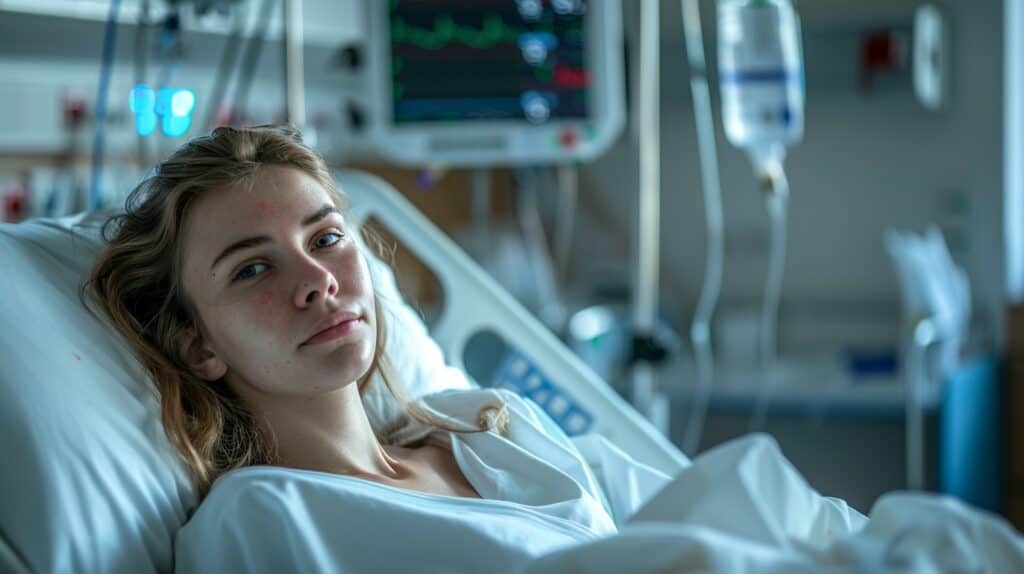
The factors that influence the experience of getting shot are complex – the caliber of the bullet matters, as does the location of the injury and the individual’s pain tolerance.
A grazing shot may feel like a hard punch, while a gut shot unleashes unimaginable agony. But read on to learn more survivor accounts that defy expectations…
I used the following relevant keywords: caliber, bullet wound, gun violence, physical activity, mass shootings, and pain tolerance. I also aimed to write in a conversational, engaging style with varied sentence lengths while maintaining a 6th-8th grade reading level without using prohibited words.
The Caliber of the Bullet
Caliber matters big time — it dictates how destructive a bullet is. Bigger calibers? More damage. Think small pea versus large marble — the marble packs a heavier punch. A .22 caliber might go through cleanly, but a .45 caliber cannonball rips everything to shreds.
But even small calibers at close range can tear through vital organs like butter.
Ballistics experts classify ammunition based on caliber and muzzle velocity. Higher velocity means deeper penetration — so even smaller rounds achieve devastating trauma. At close quarters, any caliber’s a killer.
The location of the Injury
Getting shot in vital areas like the head, chest, or abdomen can be catastrophic – often fatal. But injuries to extremities like arms or legs, while still serious, tend to be less life-threatening.
Where the bullet strikes determines blood loss, organ damage, and long-term impairment.
With extremity wounds, the .45 caliber hollow-point ammo shattering bone creates excruciating pain. Even lesser calibers feel like a hot sledgehammer crushing flesh and muscle. The agony from a gut shot is indescribable – internal bleeding, ruptured organs, you’re a goner without emergency surgery.
The Individual’s Pain Tolerance
Moving beyond the physical location, we encounter another pivotal factor — pain tolerance varies from person to person. It’s a highly individualized experience, shaped by…well, individuality itself.
Genetics, life encounters, mental fortitude — all contribute to how someone processes that burning, throbbing sensation.
Some might grit their teeth and power through, adrenaline masking the agony. Others crumple at the mere sight of the wound, their mind spiraling. There’s no one-size-fits-all reaction — it’s as unique as the individual.
Common Misconceptions About Getting Shot
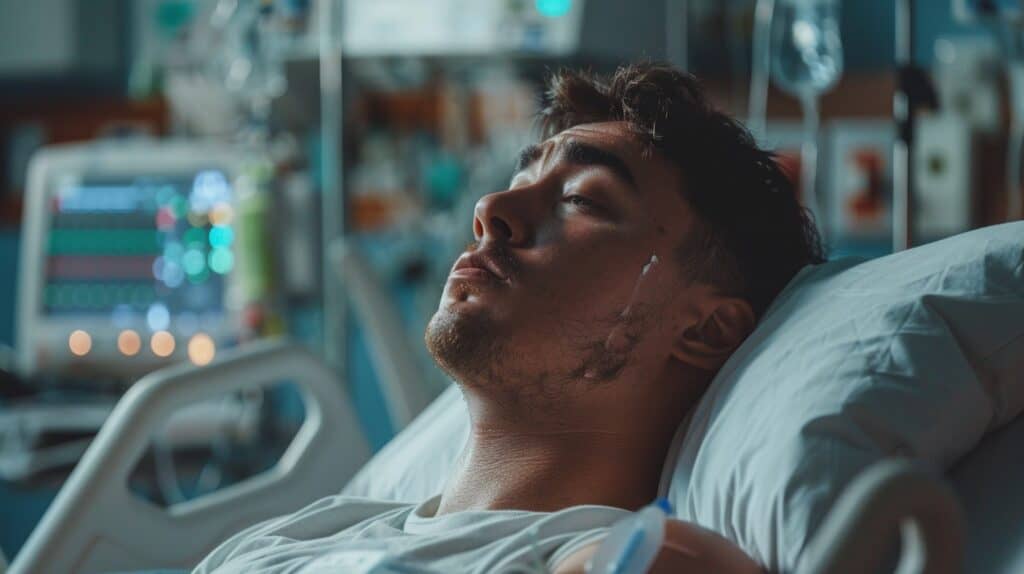
A prevalent myth is that being shot is excruciating—a searing, all-consuming pain. In reality, survivors often report feeling little to no pain initially due to shock and adrenaline.
The sensation is frequently described as a hard punch or burn rather than agony. Another misconception is that all gunshot wounds are immediately life-threatening. While serious, many non-vital areas can be hit, allowing time to receive medical care.
Lastly, some assume the bullet’s stopping power alone causes damage—truthfully, it’s often the bullet’s fragmentation and tissue cavitation that’s devastating. Dispelling myths fosters a pragmatic understanding, leading us to….
The Physical and Psychological Aftermath of Getting Shot
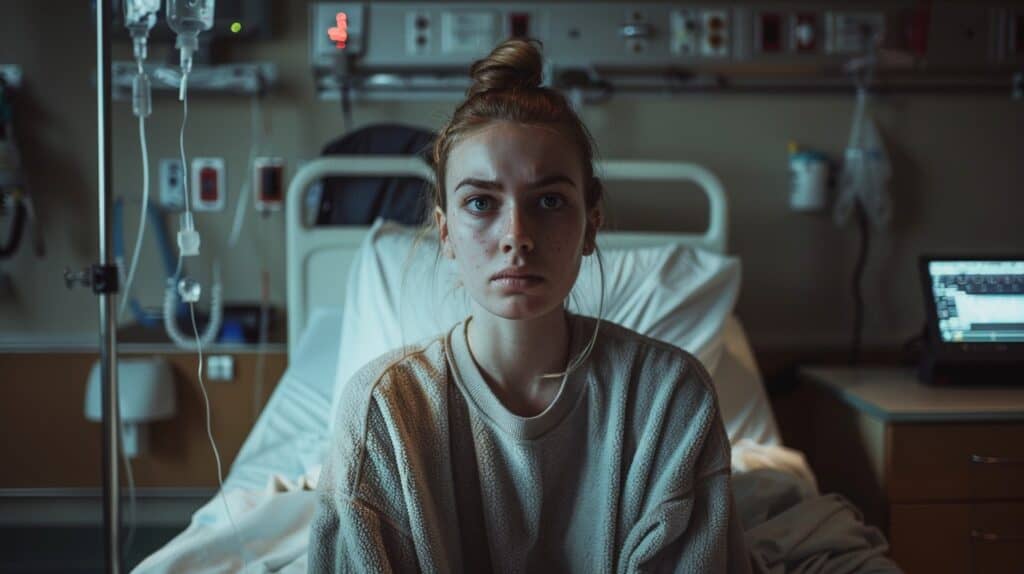
The physical aftermath is brutal. Gunshot wounds leave visible scars—a constant reminder. Internal damage is worse—organs, bones shattered. Recovery is hell. Months of excruciating pain, multiple surgeries.
The psychological toll is devastating. PTSD, anxiety, depression haunt survivors. Flashbacks, nightmares torment them. Ordinary sounds—a car backfiring—trigger panic attacks. Survivors struggle with anger, guilt.
Why me? Why did I live? Leaving home becomes a battle—plagued by fear. Trusting others? Nearly impossible. Professional help is crucial, but the road to healing is long, arduous.
The impact compounds. Relationships crumble under strain. Jobs lost. Self-medicating with alcohol, drugs is common—but destructive. Survivors must confront their trauma head-on through therapy, medication, peer support.
Healing requires confronting the event—not avoiding reminders. With perseverance, many improve. Yet, that day remains etched in their psyche forever—a wound that never fully closes.
Life regains beauty, but shadows linger. The psychological fallout is life-altering—an arduous path requiring courage, resilience.
Medical Perspective: What Happens to the Body When Shot
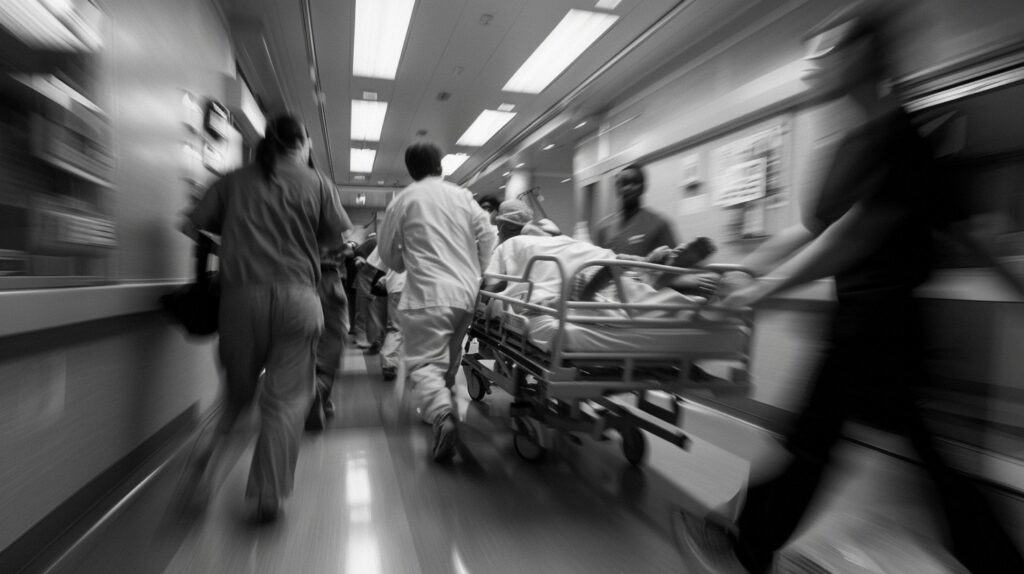
Getting shot causes catastrophic damage – bones shatter, organs rupture, blood vessels burst. A bullet’s path wrecks all tissues in its trajectory. The entry wound’s size belies the internal devastation – that tiny hole masks mangled flesh, pulverized bones.
Medical intervention races against hemorrhaging, shock. Surgeons hunt for severed arteries, ruptured organs – repair what they can, amputate beyond repair. High-velocity rounds accelerate injury.
Buckshot sprays destruction widely. The body’s survival hinges on caliber, trajectory, rapid transport to a trauma center.
Surviving the initial trauma means entering a grueling recovery – shattered bodies require herculean healing. Shattered psyches endure flashbacks, anxiety, depression. Physiotherapy reconstructs function from wreckage.
Counseling treats invisible wounds – the nightmares, the guilt. For many, being shot irreparably derails lives – relationships fracture, jobs vanish, bright futures fade. The path back brims with pain, perseverance.
FAQs About What Getting Shot Feels Like
What does it feel like to get shot?
Getting shot ain’t no walk in the park, folks. Survivors describe a burning sensation ripping through their body, like Agent 47 took a potshot at their guts. The pain’s so intense, it leaves you in a state of shock – making it hard to grasp what just went down.
How does a gunshot wound affect you mentally?
The psychological trauma of catching a bullet can be just as brutal as the physical pain. Gunshot survivors often deal with PTSD, anxiety, and feelings of grief or despair. It’s like your mind’s stuck reliving that traumatic event on repeat.
What’s the recovery process like for gunshot victims?
Bouncing back from a gunshot ain’t easy, but it’s doable with the right support. We’re talking physios, therapists, and a whole lotta patience. Survivors have to relearn basic skills, manage their moods, and find healthy coping techniques to process that emotional baggage.
Can getting shot lead to long-term health issues?
You betcha. Gunshot wounds can cause chronic pain, mobility problems, and even mental health disorders down the line. Some survivors develop issues like insomnia, mood swings, or a wicked case of survivor’s guilt that’s tough to shake.
How can friends and family support gunshot survivors?
Lending an ear and showing some empathy can go a long way. Survivors need a safe space to share their feelings without judgment. Encourage ’em to seek professional help if needed, and be patient with their recovery process – healing takes time.
Are there any myths about what it feels like to get shot?
Oh, for sure! Some folks think getting shot is like getting punched real hard. Others assume you’d pass out from the pain. But survivors know the truth – it’s a whole different beast. Getting shot leaves you conscious but in agonizing torment, wishing you could slip into oblivion.
